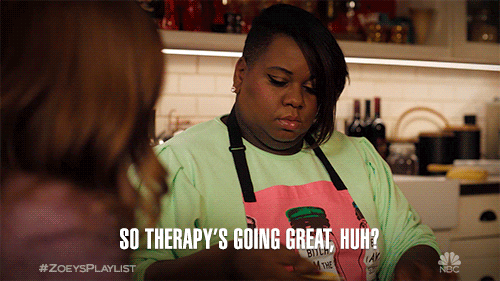
Mental health illnesses can be very disruptive to a person’s life. While the awareness of mental health illnesses is on the rise, it takes time for people to accept their mental health concerns and start seeking treatment.
Our culture is so deeply embedded in self-reliance, that seeking help for your mental health is seen as a sign of weakness and makes one feel vulnerable. Additionally, factors like lack of rationality about one’s mental condition, lack of awareness about mental health disorders, and the stigma attached to mental health illnesses deter people from seeking professional help.
Approaching and convincing a loved one to seek professional help is the best thing you can do to help in their healing. However, it can be a tricky situation to navigate through. And so, we spoke to Mrs Shaili Mehta Sonani, an in-house psychologist at Veda Rehab & Wellness to explain to us how to handle this delicate conversation and encourage your loved one to seek professional help. Here’s what she had to say:

1. Choose The Right Place & Time
Avoid having the conversation in front of other people or when they are in a bad mood, tired or doing something important. It is important to have the conversation in private and at the right place and time.
2. Prepare Them For The Conversation
Letting your loved one know beforehand that you want to have a conversation with them is a great step. It will help them focus their attention on the conversation and take the matter seriously.
3. Use Non-Stigmatising Language
The stigma related to mental health is real. It is very important to use non-stigmatising language and acknowledge their distress when having this very important conversation to bring them around the idea of seeking help.

4. Avoid Giving Ultimatums
One needs to encourage their loved ones to seek professional help and not force them into it. Giving ultimatums can add to their distress and put unwanted additional pressure on them.
5. Show Support & Empathy
Approach your loved one that you are coming from a place of care and empathy. Do not blame them for their problems. Instead, encourage them to be kind to themselves. Convey to them that you are having this conversation because you are concerned about them.
6. Be Prepared For Resistance
You need to be prepared for resistance when approaching someone to seek professional help. They may resist the idea of seeking therapy, and may get defensive, and offended. Try to highlight the importance of seeking help. Tell them they are important to you and this will benefit your relationship with them.
7. Share Your Personal Experience
If you have gone to therapy, share your personal experience with them. This will help a great deal in normalising seeking professional help. Tell them, what therapy was like for you, how confidential it is, and how has seeking professional help benefited you.

8. Facilitate The Treatment
To really help a loved one what you need to offer is meaningful support. You may need to help them find the right mental health professional for them and book an appointment. Offer to accompany them to the therapist’s office if they want you to. Check with them if they have any assistance with practical barriers like cost, timing, commute, severe symptoms, disability, etc.
9. Offer Diverse Treatment Options
The right treatment may vary for different people. Help them by sharing details of different anonymous and confidential hotlines, face-to-face practitioners, online therapists, psychiatrists, support groups, volunteer-run services, etc. This will help them make a choice of treatment that they are comfortable with.
10. Follow Up
Check if they have any questions regarding the treatment and try to solve them. Ask them how their appointment went. However, make sure to not ask prying questions about the counselling unless they want to share.
Seeking professional help to work on your mental health requires strength and courage. However, with the right support, it can be a life-changing experience. Motivate your loved one to have an experience of counselling at an established rehabilitation centre, such a Veda Rehabilitation & Wellness, which operates with a team of world-class professionals and offers a supportive and sympathetic environment to help them with their healing.
Join the Girl Tribe by MissMalini App to be a part of the conversation.

